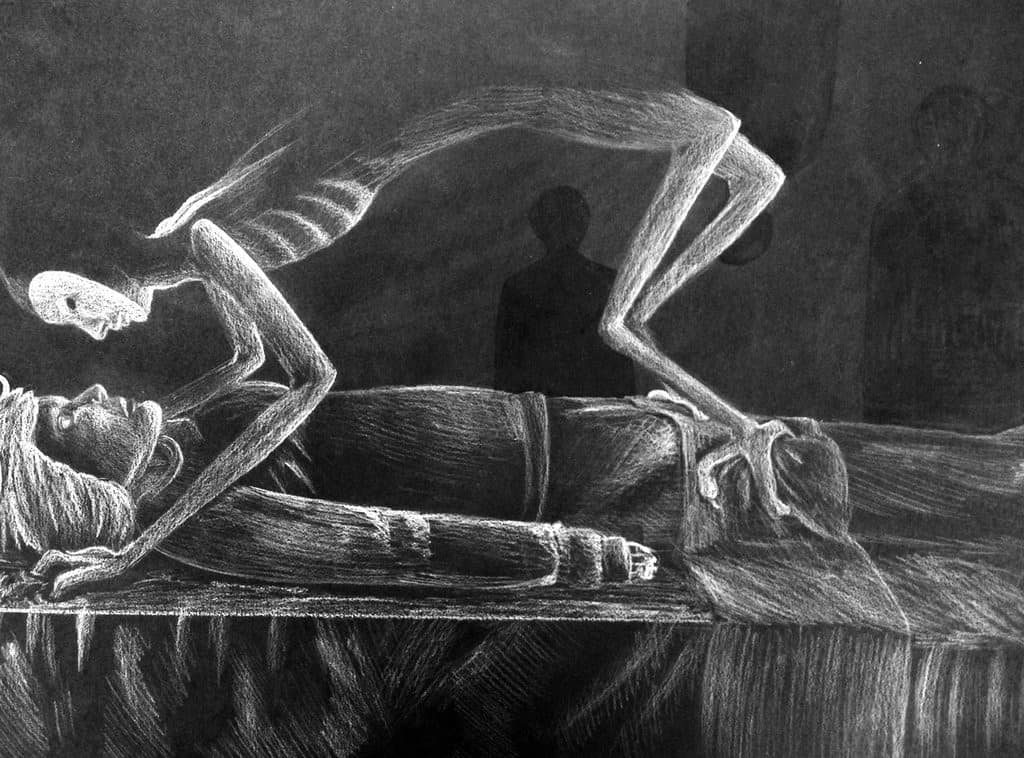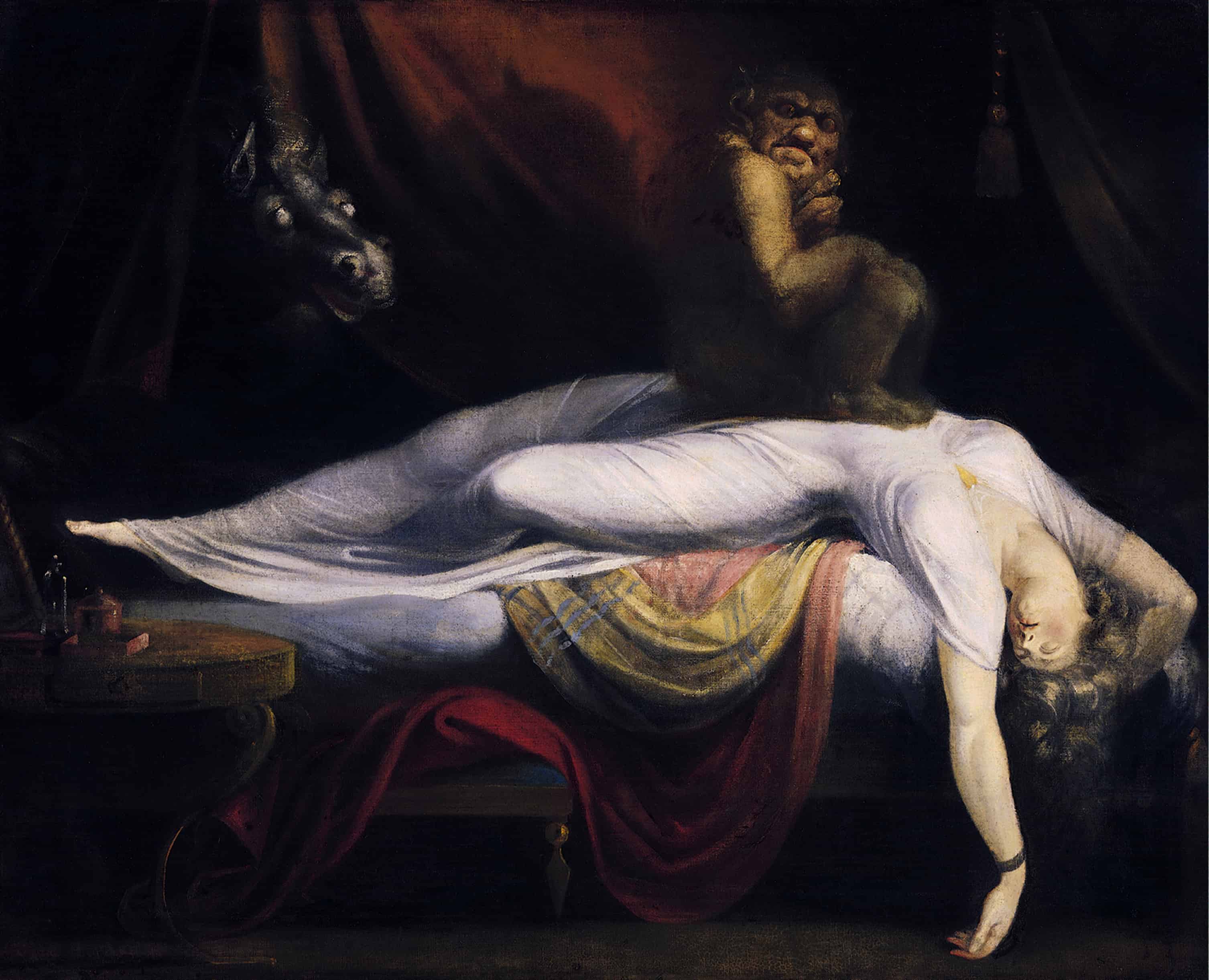Have you ever felt conscious, but you are unable to move? You must probably be experiencing some sleep paralysis (SP). The experience may be alarming to you especially if it is the first time it happened but, according to the NHS, SP does not bring any harm, and it will surely pass in a couple of seconds or minutes. It is undeniable, though, that this experience can also be frightening.
A lot of people have encountered sleep paralysis even just once or twice in their lifetime. Others go through it a couple of times each month, or on a more regular basis. People of all ages may suffer from SP, but teens and young adults are the ones to most likely experience sleep disorders. If you haven’t experienced even a single symptom, it is essential to know what sleep paralysis is.
It is essential to know, too, the signs, symptoms, treatment, and preventive measures so as not to let this happen or recur to you. WebMD defines sleep paralysis as “a feeling of being conscious but unable to move.” It occurs when an individual passes between phases of sleep and wakefulness. During these changes or shifts in sleep schedules, you may not be able to speak or move for a few seconds or even up to a few minutes.
Discover the Types of Sleep Paralysis and their Causes
SP may occur in anyone regardless of age and time. It has 2 variations: Sleep paralysis while falling asleep, and the other, while waking up. When SP occurs while falling asleep, you call it hypnagogic paralysis. And when it happens while you are waking up, you call it hypnopompic.
Hypnagogic SP takes place if a person’s brain stays or turns aware while the rest of the body has relaxed into a sleeping condition. Hypnopompic SP, on the other hand, takes place when an individual’s mind ‘wakes up’ before the rest of his body has got the chance to.
Sleep paralysis occurs when the parts of the rapid eye movement or REM sleep while a person is awake. During this state, the body is unable to move, aside from the muscles and eyes used for breathing, possibly to stop that person from acting out of his dreams and possibly, hurting himself.
It is unclear why REM sleep can, at times take place while a person is awake. However, it has been linked with the following causes:
- Insufficient sleep [insomnia or sleep deprivation]
- Family history [other members of the family experience SP, too]
- Irregular sleeping patterns [due to jet lag or work schedule]
- Sleeping on your back
- Narcolepsy [a long-term state causing an individual to fall asleep suddenly]
- A family member experiences sleep paralysis
- In most cases, SP is among the occasional events happening to an otherwise healthy person.

Have you experienced these symptoms?
The primary symptom of sleep paralysis is having complete awareness of what’s happening around but the temporary inability to either talk or move. This typically takes place when a person is waking up, but it can also occur when falling asleep. Are you familiar with this symptom? If you experienced this, or are still experiencing this, during an SP episode you may:
- Have a hard time taking deep breaths
- Move your eyes [for some, they can open their eyes as well, while the others can’t]
- Sense or feel that something or someone is in the room or area with you, where you are [some form of hallucination that you even think evil presence]
- Feel terrified or frightened
The length of each episode may vary from a couple of seconds to minutes. Then, afterward, you can already speak or move as if nothing happened. However, you may have a feeling of anxiousness about, and being unsettled when returning to sleep.
You can Treat Sleep Paralysis
More often than not, SP gets better over time, and improving your sleep cycle and environment help. In some circumstances, you don’t need any medicine or prescription to ensure effective treatment for sleep paralysis. By just having some sleep hygiene and environmental improvements, you can have a good night’s sleep. Other natural remedies include:
- Most adults should sleep for at least 6 to 8 hours of sound sleep each night.
- Go to bed possibly, at the same time every night, and get up at precisely the same time every morning.
- Create a comfortable, dark, quiet, and not too cold or hot sleeping environment.
- Do a lot of research or reading about how to improve sleep habits.
- Avoid smoking, drinking alcohol or caffeine, or eating big meals shortly before you go to bed.
- Exercise regularly (but not within 4 hours before bedtime).
If you are experiencing severe sleep paralysis, your specialist doctor may recommend that you take some antidepressant medicines like clomipramine, for one as your sleep medicine. These medications are effective by shifting REM sleep and are usually prescribed with lower dosages than when taken for depression.
How to Avoid Future Episodes of Sleep Paralysis?
Many have attested that sleep paralysis is avoidable, and anyone can overcome it. Also, you can even deter an episode of it is impossible to eliminate it. Below are some of the specific actions sleep specialists recommend to prevent the occurrence of SP in the future:
- Prioritize your sleep. If you used to sacrifice sleep for work, change that attitude. Sleep is certainly the best thing you can have and do to stay healthy, so be sure to get a lot of it.
- Do things that lead to a good night’s sleep. A perfect example of an activity is to spend one whole day at the park and relax.
- Never sleep on your back. Try sleeping in other positions for quite some time, or, at least while recovering from an illness or any condition.
- Reduce your anxiety and stress. This goes for both physical and mental stress. A great deal of most people’s episode of sleep paralysis is due to increased levels of anxiety and stress.
- Keep distance from liquor and other substances. You don’t need to get rid of alcohol all your life, but it is possibly a good idea as you try to deal with an episode of SP. Drugs and alcohol reduce one’s sleep quality on top of all other issues they cause.
You don’t have to experience sleep paralysis to oblige yourself or show more interest in knowing important information about this sleep disorder. As you read earlier in this article, SP can happen to anyone, anytime. So, if you haven’t had an episode of SP, we’ve just helped you get ready for its possible occur at an unexpected time.
Share this article today and help a loved one prepare too, for the possibility of sleep paralysis episodes.

